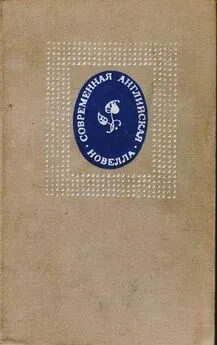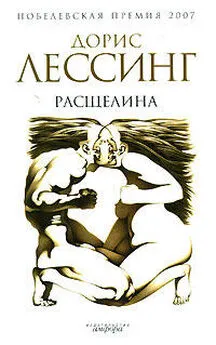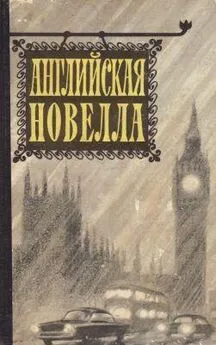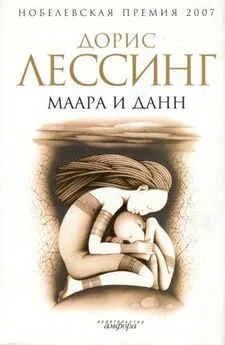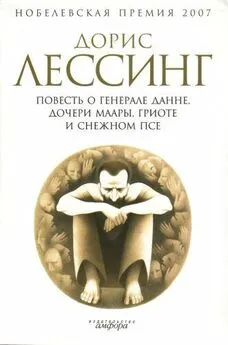Дорис Лессинг - Англия и Англия
- Название:Англия и Англия
- Автор:
- Жанр:
- Издательство:Прогресс
- Год:1969
- Город:Москва
- ISBN:нет данных
- Рейтинг:
- Избранное:Добавить в избранное
-
Отзывы:
-
Ваша оценка:
Дорис Лессинг - Англия и Англия краткое содержание
Рассказ на тему о стирании социальных различий в сегодняшней Британии, о превращении рабочего в представителя профессии «чистого воротничка». Интеграция классов, как об этом пишет западная социология? Нет, отвечает Лессинг, не безболезненная интеграция, а выламывание из класса, насильственное выдирание с корнями, и сопряжено оно с такими нравственными и психологическими издержками, что вряд ли их окупает. Тема рабочей гордости, рабочего достоинства, тема врожденной доброты людей труда определяет в конечном счете основную интонацию рассказа Лессинг «Англия и Англия».
Англия и Англия - читать онлайн бесплатно полную версию (весь текст целиком)
Интервал:
Закладка:
Charlie said angrily: 'I got fed up with t'earls and t'dukes.
'Eh, said Lennie quickly, 'but you didn't need to mind them, they didn't mean to rile you.
'I know they didn't.
'Mum's right, said Lennie, with another anxious but carefully brief glance, 'you're not looking too good. What's up?
'What it I don't pass ^examinations, said Charlie in a rush.
'Eh, but what is this, then? You were always first in school. You were the best of everyone. Why shouldn't you pass, then?
'Sometimes I think I won't, said Charlie lamely, but glad he had let the moment pass.
Lennie examined him again, this time frankly, and gave a movement like a shrug. But it was a hunching of the shoulders against a possible defeat. He sat hunched, his big hands on his knees. On his face was a small critical grin. Not critical of Charlie, not at all, but of life.
His heart beating painfully with guilt, Charlie said: 'It's not as bad as that, I'll pass. The inner enemy remarked softly: I'll pass, then I'll get a nice pansy job in a publisher's office with the other wet-nosed little boys, or I'll be a sort of clerk. Or I'll be a teacher — I've no talent for teaching, but what's that matter? Or I'll be on the management side of industry, pushing people like Lennie around. And the joke is, Lennie's earning more than I shall for years. The enemy behind his right shoulder began satirically tolling a bell and intoned: 'Charlie Thornton, in his third year at Oxford, was found dead in a gas-filled bed-sitting room this morning. He had been overworking. Death from natural causes. The enemy added a loud' rude raspberry and fell silent. But he was waiting: Charlie could feel him there waiting.
Lennie said: 'Seen a doctor, Charlie boy?
'Yes. He said I should take it easy a bit. That's why I came home.
'No point killing yourself working.
'No, it's not serious, he just said I must take it easy.
Lennie's face remained grave. Charlie knew that when he got home he would say to the mother: 'I think Charlie's got summat on his mind. And his mother would say (while she stood shaking chips of potato into boiling fat): 'I expect sometimes he wonders is the grind worth it. And he sees you earning, when he isn't. She would say, after a silence during which they exchanged careful looks: 'It must be hard for him, coming here, everything different, then off he goes, everything different again.
'Shouldn't worn', Mum.
'I'm not worrying. Charlie's all right.
The inner voice inquired anxiously: 'If she's on the spot about the rest, I suppose she's right about the last bit too — i suppose i am all right?
But the enemy behind his right shoulder said: A man's best friend is his mother, she never lets a thing pass.
Last year he had brought Jenny down for a weekend, to satisfy the family's friendly curiosity about the posh people he knew these days. Jenny was a poor clergyman's daughter, bookish, a bit of a prig, but a nice girl. She had easily navigated the complicated currents of the weekend, while the family waited for her to put on 'side'. Afterwards Mrs Thornton had said, putting her finger on the sore spot: 'That's a right nice girl. She's a proper mother to you, and that's a fact. The last was not a criticism of the girl, but of Charlie. Now Charlie looked with envy at Lennie's responsible profile and said to himself: Yes, he's a man. He has been for years, since he left school. Me, I'm a proper baby, and I've got two years over him.
For above everything else, Charlie was made to feel, everytime he came home, that these people, his people, were serious; while he and the people with whom he would now spend his life (if he passed the examination) were not serious. He did not believe this. The inner didactic voice made short work of any such idea. The outer enemy could, and did, parody it in a hundred ways. His family did not believe it, they were proud of him. Yet Charlie felt it in everything they said and did. They protected him. They sheltered him. And above all, they still paid for him. At his age, his father had been working in the pit for eight years.
Lennie would be married next year. He already talked of a family. He, Charlie (if he passed the examination), would be running around licking peoples arses to get a job, Bachelor of Arts, Oxford, and a drug on the market.
They had reached Doncaster. It was raining. Soon they would pass where Doreen, Lennie's girl, worked. 'You'd better get off here, Charlie said. 'You'll have all that drag back through the wet. 'No, sail right, I'll come with you to the station.
There were another five minutes to go. 'I don't think it's right, the way you get at Mum, Lennie said, at last coming to the point.
'But I haven't said a bloody word, said Charlie, switching without having intended it into his other voice, the middle-class voice which he was careful never to use with his family except in joke. Lennie gave him a glance of surprise and reproach and said: All the same. She feels it.
'But it's bloody ridiculous. Charlie's voice was rising. 'She stands in that kitchen all day, pandering to our every whim, when she's not doing housework or making a hundred trips a day with that bloody coal… In the Christmas holidays, when Charlie had visited home last, he had fixed up a bucket on the frame of an old pram to ease his mother's work. This morning he had seen the contrivance collapsed and full of rainwater in the back yard. After breakfast Lennie and Charlie had sat at the table in their shirtsleeves watching their mother. The door was open into the back yard. Mrs Thornton carried a shovel whose blade was nine inches by ten, and was walking back and forth from the coalhole in the yard, through the kitchen, into the parlour. On each inward journey, a small clump of coal balanced on the shovel. Charlie counted that his mother walked from the coalhole to the kitchen fire and the parlour fire thirty-six times. She walked steadily, the shovel in front, held like a spear in both hands, and her face frowned with purpose. Charlie had dropped his head on to his arms and laughed soundlessly until he felt Lennies warning gaze and stopped the heave of his shoulders. After a moment he had sat up, straight-faced. Lennie said: 'Why do you get at Mum, then? Charlie said: 'But I haven't. said owt. 'No, but she's getting riled. You always show what you think, Charlie boy. As Charlie did not respond to his appeal — for far more than present charity — Lennie went on: 'You can't teach an old dog new tricks. 'Old! She's not fifty!
Now Charlie said, continuing the early conversation: 'She goes on as if she were an old woman. She wears herself Out with nothing — she could get through all the work she has in a couple of hours if she organized herself. Or if just for once she told us where to get off.
'What'd she do with herself then?
'Do? Well, she could do something for herself. Read. Or see friends. Or something.
'She feels it. Last time you went off she cried.
'She what? Charlie's guilt almost overpowered him, but the inner didactic voice switched on in time and he spoke through it: What right have we to treat her like a bloody servant? Betty likes her food this way and that way, and Dad won't eat this and that, and she stands there and humours the lot of us — like a servant.
And who was it last night said he wouldn't have fat on his meat and changed it for hers? said Lennie smiling, but full of reproach.
'Oh, I'm just as bad as the rest of you, said Charlie, sounding false. 'It makes me wild to see it, he said, sounding sincere. Didactically he said: All the women in the village — they take it for granted. If someone organized them so that they had half a day to themselves sometimes, they'd think they were being insulted — they can't stop working. Just look at Mum, then. She comes into Doncaster to wrap sweets two or three times a week — well, she actually loses money on it, by the time she's paid bus fares. I said to her, 'You're actually losing money on it," and she said: "I like to get out and see a bit of life." A bit of life! Wrapping sweets in a bloody factory. Why can't she just come into town of an evening and have a bit of fun without feeling she has to pay for it by wrapping sweets, sweated bloody labour? And she actually loses on it. It doesn't make sense. They're human beings, aren't they? Not just…
'Not just what? asked Lennie angrily. He had listened to Charlie's tirade, his mouth setting harder, his eyes narrowing. 'Here's the station, he said in relief. They waited for the young miners to clatter down and off before going forward themselves. "I'll come with you to your stop, said Charlie; and they crossed the dark shiny, grimy street to the opposite stop for the bus which would take Lennie back to Doreen.
'It's no good thinking we're going to change, Charlie boy.
'Who said change? said Charlie excitedly; but the bus had come, and Lennie was already swinging on to the back. 'If you're in trouble just write and say, said Lennie, and the bell pinged and his face vanished as the lit bus was absorbed by the light-streaked drizzling darkness.
There was half an hour before the London train. Charlie stood with the rain on his shoulders, his hands in his pockets, wondering whether to go after his brother and explain — what? He bolted across the street to the pub near the station. It was run by an Irishman who knew him and Lennie. The place was still empty, being just after opening time.
'It's you then, said Mike, drawing him a pint of bitter without asking. 'Yes, it's me, said Charlie, swinging himself up on to a stool.
And what's in the great world of learning?
'Oh Jesus, no! said Charlie. The Irishman blinked, and Charlie said quickly: 'What have you gone and tarted this place up for?
The pub had been panelled in dark wood. It was ugly and comforting. Now it had half a dozen bright wallpapers and areas of shining paint, and Charlie's stomach moved again, light filled his eyes, and he set his elbows hard down for support, and put his chin on his two fists.
'The youngsters like it, said the Irishman. 'But we've left the bar next door as it was for the old ones.
'You should have a sign up: Age This Way, said Charlie. 'I'd have known where to go. He carefully lifted his head off his fists, narrowing his eyes to exclude the battling colours of the wallpapers, the shine of the paint.
'You look bad, said the Irishman. He was a small, round, alcoholically cheerful man who, like Charlie, had two voices. For the enemy — that is, all the English whom he did not regard as a friend, which meant people who were not regulars — he put on an exaggerated brogue which was bound, if he persisted, to lead to the political arguments he delighted in. For friends like Charlie he didn't trouble himself. He now said: All work and no play.
'That's right, said Charlie. 'I went to the doctor. He gave me a tonic and said I am fundamentally sound in wind and limb. "You are sound in wind and limb," he said, said Charlie, parodying an upper-class English voice for the Irishman's pleasure.
Mike winked, acknowledging the jest, while his professionally humorous face remained serious. 'You can't burn the candle at both ends, he said in earnest warning.
Charlie laughed out. 'That's what the doctor said. You can't burn the candle at both ends, he said.
This time, when the stool he sat on, and the floor beneath the stool, moved away from him, and the glittering ceiling dipped and swung, his eyes went dark and stayed dark. He shut them and gripped the counter tight. With his eyes still shut he said facetiously: 'It's the clash of cultures, that's what it is. It makes me light-headed. He opened his eyes and saw from the Irishman's face that he had not said these words aloud.
Читать дальшеИнтервал:
Закладка:
